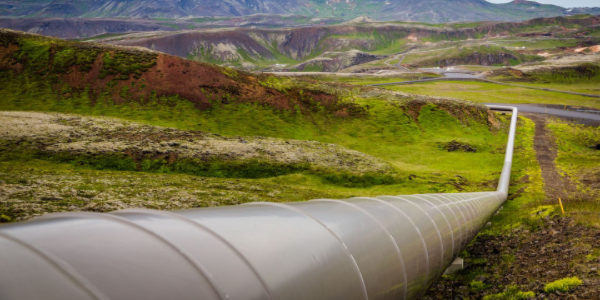If you think that the discovery of crude oil and all its by-products is the best thing that has ever happened to man, then you are right. Crude oil plays a significant role in your day to day life. Your transport and even some of the jobs we often do are all made possible by crude oil and its by-products.
Oil has created a multi-trillion dollar industry that sustains all other sectors of the economy. This has led the government and oil companies to invest heavily in the areas of its exploration, mining, transportation, and refining.
The most common method of transporting oil in its crude form or as a finished product is through pipelines. Research indicates that pipe corrosion leads to losses of up to $9 billion every year in the United States alone and an estimated loss of $2.2 trillion all over the world.
These numbers mean that oil pipeline corrosion is a costly affair. The effects of pipeline corrosion can occur inside or outside the pipes. Preventing moisture penetration on uninsulated pipes is one of the corrosion protection methods that are used to increase the lifespan of oil pipelines.
To settle on the best corrosion prevention methods; it is crucial to understand what causes corrosion. From a chemical perspective, the term corrosion means the conversion of a metal into a more chemically stable. This is realized by the metal forming an oxide upon reacting with elements such as oxygen.
How does corrosion in pipelines occur?
Where metal pipelines are used in transporting oil-based products, preventing moisture penetration is paramount—it will prevent possible accidents and huge losses due to spillage. When the pipe is uninsulated or exposed to friction with other metals due to linear expansion, the protection is lost, leaving the bare surface to react with the elements.
There are several methods of preventing moisture penetration, and one of the standard approaches is using a pipe wear pad. Compared to other corrosion prevention methods, the wear pad offers protection to the pipe where it is vulnerable the most.
Wear pads are non-metallic products that offer corrosion protection to uninsulated piping systems with the intention of extending their lifespan as well as preventing dangers such as leakages. They also create a barrier that stops metal to metal contact and isolates the piping system from pipe rack, which could at times carry electricity.
What are the key benefits of these pipe wear pads?
Relatively lower cost of installation
Installing these wear pads will not require expensive welding methods. The process does not require the hiring of highly trained personnel, which will otherwise turn out to be costly. Hot work permits are also not necessary.
Reduced maintenance cost
The durability of wear pads is an important aspect of preventing moisture penetration. Other ways that are designed to perform similar tasks are not cost-effective and will not guarantee safety from corrosion in the long run.
The wear pads are also tested and certified by all the relevant bodies, and this gives them a clean bill of health to be used in the oil industries.
What are the other corrosion prevention methods?
Preventing moisture penetration means ensuring that the moisture and other elements do not reach the surface of the metal. These methods are not so useful, especially where there are joints, contacts with other metals, or hard surfaces. They, however, play a crucial role in ensuring that the risks are eliminated where special attention is not required.
These methods include:
- Painting
- A thorough inspection of the pipelines
- Use of chemical processes to prevent or reduce the effects of the corrosion problem
Corrosion prevention shouldn’t be a daunting task. Using wear pads alongside these other methods will go a long way in eliminating all the adverse effects that can be caused by the corrosion problem. You do not need to incur huge costs of repair and maintenance of your piping system when you can take simple preventative measures. They say prevention is better than cure. The potential disasters that can be caused by corrosion are far too expensive to solve and should be avoided at all costs.



Leave a Reply